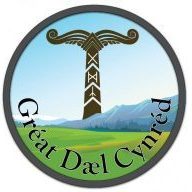These are a few terms we use in Great Valley Kindred, what they mean, and why we use them.
Blot: An offering to the gods. In the old days, blood from sacrificed animals was offered. In modern times, drink (usually alcoholic) is offered. In some Anglo-Saxon groups, the term Blot is used only if the offering is a blood sacrifice (which is, of course, comparatively rare). The term for a bloodless sacrifice would be faining. GVK typically uses the term blot to describe the section of its rituals where liquid offerings are consecrated to the gods and spirits.
Husel: a sacred feast. The meal portion of a ritualistic celebration is the Husel. Our kindred doesn’t really use this term much.
Ealdor: “Elder.” A senior member of the kindred.
Freonde: meaning “friend,” this is the entry level position of membership for GVK, and is also used for associated guests who attend our rites but are not seeking formal membership.
Frith: peace and mutual support. The bonds of friendship, unity and reciprocal ties that unite the members within a group are known as Frith. Senior members of GVK must take an oath of Frith.
Frithwebe: “Frithweaver.” In ancient Germanic culture, the Lady of the Hall was in charge of formally welcoming guests. In modern sumbel rituals, it is usually a woman who serves the horn of mead. In Norse circles, this position is termed “Valkyrie,” after the female spirits who serve drinks to Odin’s slain warriors in Valhalla. GVK prefers the term “Frithweaver.” It is less Norse, less gender specific, and has less of a military/Valhalla connotation. In GVK, the weofodthegn, who is also the Lady of the Hall where we meet, serves as Frithwebe. She may, however, delegate the responsibility to Gildan and Elders (of either gender) as she deems necessary.
Gilda: a member of a brotherhood. Our term for second-tier membership.
Grith: if Frith exists within a group, Grith exits between two or more groups. Grith is the absence of hostility between groups. Senior members of GVK take an oath of Grith to not act in a hostile manner to other kindreds and groups with whom we enjoy cordial relations.
Hordere: an Anglo-Saxon term that can be translated as “treasurer.” This is the term we use for our financial officer.
Innangardh: The inner-yard of one’s relations. Socially this means one’s family and tribe, in cosmological terms this means the realms of men and gods. The Innangardh is guarded with Frith. Anything outside the Innagardh is utengardh and treated with wariness and suspicion.
Larwita: this is our invented term for the kindred member who excels in learning and teaching various aspects of Germanic Lore.
Luck-Givers. Our term for the seven major deities of the kindred whom we honor in every blot. We look to these deities to bless our lives.
Notwritere. An Anglo-Saxon term we have adapted for our scribe, or note writer.
Reeve: In Anglo-Saxon England the Reeve was a magistrate appointed by the kingdom to manage local affairs. In GVK the Reeve is the non-clergy administrator of the Kindred. The Reeve position is loosely equivalent to the Lawspeaker position in some Norse groups. In Heathen times, lawspeakers were officials of the regional assemblies who memorized the laws and recited them. In modern Heathenry, the lawspeaker is usually the official of the Kindred who guards the tribal rules and mores.
Runwita: in Anglo-Saxon England a counselor whose command of secret knowledge allowed him to advise the King. In Heathen times this probably entailed command of the runes. GVK uses this term for its runic expert and seer.
Symbel (Norse: Sumbel) : A formal drinking ritual that involves toasts to the gods and ancestors, as well as boasts and oaths in front of one’s peers. In modern ritual, a drinking horn is passed around, usually three times. The horn usually contains mead or some other alcoholic beverage, but may contain fruit juice or cider for those who can’t drink alcohol.
Utengardh. The “outer-yard.” Socially, that which exists outside the familiar and supportive bonds of family and tribe (innangardh). In terms of cosmology, the outer-yard consists of the realms of giants, wights and spirits who exist outside the world of men and gods.
Wælcyrge (Norse: Valkyrie). In mythology, the female spiritual beings who arrive on the battlefield to choose the slain and lead their souls to Valhalla. While in Valhalla they serve mead to the fallen warriors. In Norse Heathen circles, the term “valkyrie” is designated to the person (usually female) who passes the horn in Sumbel. GVK prefers the term “Frithweaver.”
weoh: sacred image of a deity.
weofod: place where the sacred image is kept; altar.
weofodthegn: keeper of the sacred image; Altar-Priest.
Weofodthegn (Wéofodþygen) is a term generally used for clergy within Anglo-Saxon Heathenry. It is roughly equivalent to the Godhi (male)/ Gydia (female) used by Norse groups. The Weofodthegn is the kindred’s spiritual adviser, lead liturgist and interfaith ambassador.
Witan: the council of wise men who advised the Anglo-Saxon king on all matters. GVK uses this term for its executive committee.
Wyrd. A metaphysical concept in Heathenry. It is the probable future based on the inertia of one’s past actions. Heathen’s tend to believe “we are our deeds,” meaning who you are and who you will be is a direct result of what you did, for good or for bad. But the Wyrd of an individual is also impacted by the Wyrd of their ancestors, and the Wyrd of those with whom they associate. To take an oath of Frith means essentially to bind one’s Wyrd to another.
